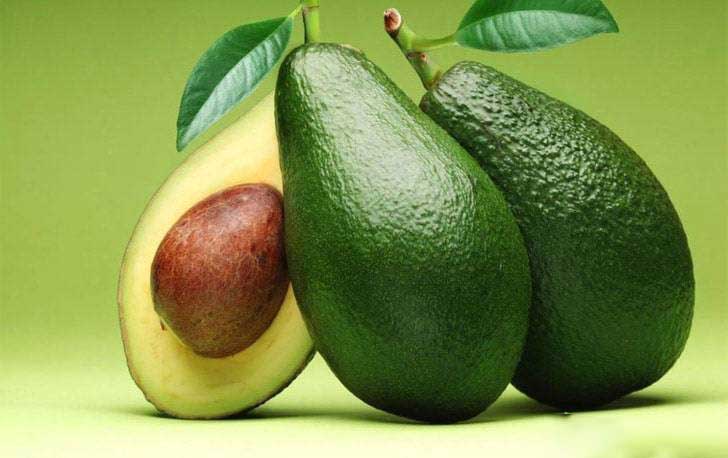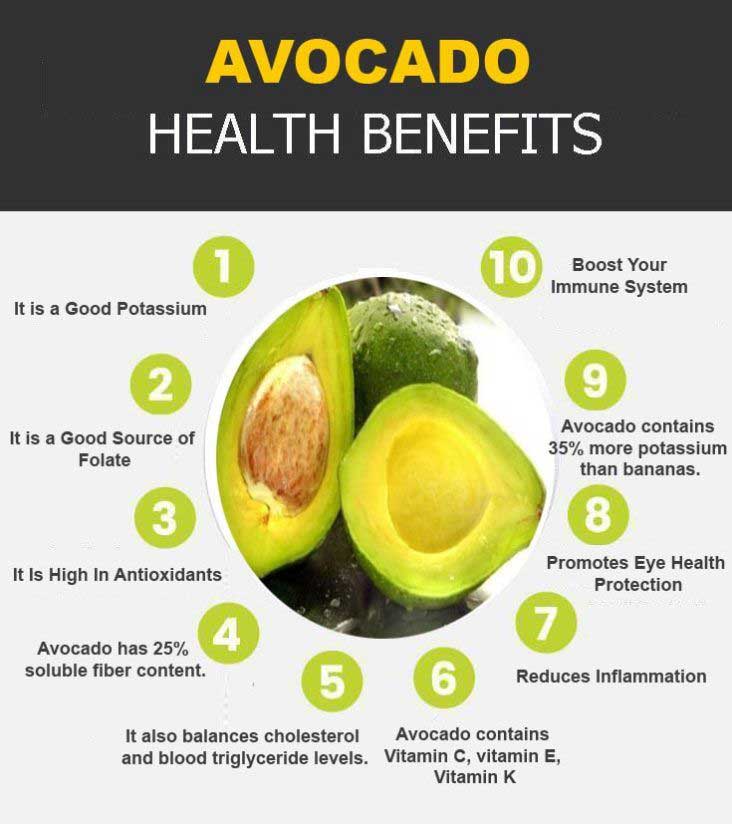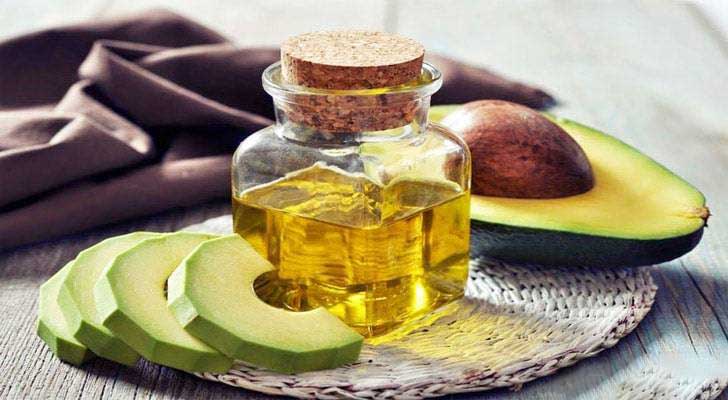Avocado is an extremely useful fruit for health with vitamins, minerals, and antioxidants.
It helps the body absorb fat-soluble vitamins and increases bioavailability when consumed with other nutrients. It also balances cholesterol and blood triglyceride levels.
Thanks to numerous antioxidants, it prevents cancer and supports the immune system. Avocado, which is a beneficial fruit for eye, skin and hair health, contains potassium with vitamins B, C, E, K. It can be used as a healthy fat instead of trans fats in meals.
Red meat alternatives can be consumed easily by vegetarians and baby food is made due to creamy consistency. Oil and leaves also provide many benefits.

What is Avocado?
Avocado, the scientific name Persea Americana known as avocado is the oil fruit of the tree. This fruit is rich in monounsaturated fats, which are unique to Mexico and Central America.
It has a smooth and creamy structure and fat ratio is higher than other fruits. It is a fruit that continues to mature after collection. There are many types of avocado from pear-shaped to round, from green to black.
Contains Vitamins and Nutritional Value
Contains Vitamin C, vitamin E, Vitamin K, pyridoxine (B6), thiamin (B1) niacin (B3), folate (B9), riboflavin (B2), pantothenic acid (B5) vitamins and potassium, iron, magnesium, phosphorus, copper, zinc and Manganese Minerals, lutein, beta-carotene and omega-3 fatty acids.
It is a good source of fiber, contains little sugar. An average avocado is about 250 calories and more than 75% comes from good fats.
What Are The Health Benefits of Avocado?
- It is the most lipophilic (oil soluble) antioxidant-containing fruit.
- It contains useful bioactive phytochemicals that are reported to have anti-carcinogenic properties.
- Balances blood pressure because of contains high potassium and low sodium.
- It contains essential fatty acids must be taken with nutrients.
- It cleanses the body from free radicals and strengthens the immune system with glutathione material contains.
- It acts as a nutritional supplement because of the increased absorption of fat-soluble foods.
- According to some studies, was determined that the addition of avocado oil to nutrients could increase antioxidant absorption by 2.6 to 15 times.
- Compared to other fruits, avocado contains very little sugar. The glycemic index load of avocado is expected to be approximately zero.
- Thus, blood sugar control and weight management can help in situations such as.
- It feeds beneficial bacteria in intestines with high fiber ratio and provides probiotic effect and prevents constipation. It has 25% soluble fiber content.
- It should be consumed in the treatment of iron deficiency with rich iron content.
Skin Health
Facial skin is often exposed to ultraviolet rays and oxidative damage occurs. Studies have shown that high levels of lutein and zeaxanthin in avocado can protect skin health and improve wound healing.
Vitamins C and E in avocado are necessary for the growth and repair of tissues.
Vitamin C is a major protein that allows the formation of collagen and forms the structure of many organs such as skin, connective tissue, joints, bones, teeth, hair.
Heart Diseases
Monounsaturated fatty acids provide general protection against heart disease and lower blood pressure.
Oleic and linoleic acid found in avocado can help prevent high cholesterol. Eating half a servings of avocado a day can help protect total cholesterol in men.
Natural plant sterol in avocado beta-sitosterol helps maintain healthy cholesterol levels. Increased fiber intake also contributes to lower blood pressure and cholesterol levels.
It has the highest antioxidant capacity of fruit lipophilic, which can be a factor in the development of vascular health.
Vitamin C and E may slow the progression of atherosclerosis and increase blood fat proteins.
Vitamin B deficiency can increase levels of homocysteine (an amino acid that causes vascular diseases), which can lead to many serious health problems by causing damage to blood vessel cells.
Avocado’s rich content in terms of B vitamins can prevent this type of health problem.

Eye Health
It has been found that foods containing unsaturated fatty acids are effective against age-related eye function disorders.
Lutein can reduce the risk of eye diseases such as cataracts and yellow spot disease. Together with zeaxanthin has a protective effect on ultraviolet light and can increase vision in dim light.
Anti-Cancer
Carotenoids, antioxidants, and glutathione in avocado are potentially protective against breast cancer, pharynx and throat cancer.
Lutein reduces oxidative stress, which is a trigger for breast cancer. C and E vitamins are potential cancer inhibitors and folate (B9) intake may be effective in protecting against gastric cancer, pancreatic cancer, and cervical cancer.
It can also be protective against colon cancer because of fibrous fruit.
Phytochemicals in avocado reduce chromosome damage caused by cyclophosphamide, a chemotherapy drug.
Avocado and Bone Health
Half of an avocado provides about 25% of daily vitamin K needs. Vitamin K promotes bone health by increasing the absorption of calcium and reducing the excretion of calcium in urine to maintain healthy bones.
Lutein and zeaxanthin-rich foods reduce the risk of cartilage injuries. Manganese-bone loss (osteoporosis) is used to prevent symptoms of. It is very useful for those with osteoarthritis.
Good Potassium
Potassium is a mineral that is not taken enough. It is an electrolyte necessary for the proper functioning of cells, tissues, and organs.
It regulates blood pressure by suppressing the negative effects of sodium on blood pressure, promotes healthy heart contractions, helps prevent stroke, kidney failure, and high blood pressure.
It contains 35% more potassium than bananas.
Avocado and Essential Oils
Fatty acids that cannot be synthesized in organisms, which must be taken from outside with nutrients and which form their own symptoms as a result of insufficiency when not taken, are called ası essential fatty acid ogan.
It contains polyunsaturated fatty acid linoleic acid (omega6), which is not produced by the body. It strengthens the immune system.
It can support the weakening and tightening of abdominal fat. Linoleic acid deficiency is directly associated with symptoms such as dry skin, brittle hair, difficulty in healing wounds, hair loss.
Generally, healthy brain functions and memory are supported by fat in avocado fruits. It can be used in cooking because of resistant to heat.
Good Source of Folate
Folate (folic acid) is important for a healthy pregnancy, reducing the risk of serious birth defects in the spine and brain. It helps to produce and protect new cells.
During periods of rapid cell division and growth such as infancy and pregnancy, increases the need for B9.
To make red blood cells and prevent anemia need folate. Foods containing sufficient folate, such as avocado, can prevent depression by preventing the accumulation of homocysteine.

What Are The Benefits Of Avocado Oil?
Avocado oil is extracted from the fruit by the cold press method. It is an alternative to olive oil in meals and salads and increases the absorption of nutrients.
It is recommended especially for dry hair as moisturizing and shine in hair care. It prevents hair loss and broken formation.
It is one of the most suitable oils for body care. It is effective against skin dryness and blemishes. Reduces age-related wrinkling symptoms.
How to Make Natural Avocado Mask Recipes?
Crushing a ripe avocado rinse a ripe avocado and add a little amount of avocado oil.
Apply the mixture to your face and after 10-15 minutes you can clean your face with warm water.
Not suitable for oily skin.
How to Make Avocado-Banana Mask?
Materials:
- 1 banana.
- 1 ripe avocado.
Preparation: Crush bananas and ripe avocado in a bowl and crush until you get a paste consistency. Apply mask to your face and clean after 10 minutes and apply your moisturizer. Suitable for dry skin
Avocado Mask With Yogurt and Green Tea
Materials:
- 1 avocado,
- 1 teaspoon yogurt,
- 1 teaspoon green tea.
Preparation: Remove avocado from the shell with a spoon. Put green tea on and beat in air and add yogurt. Apply to face and leave on for 10 minutes.
How to Make Avocado Sauce?
Materials:
- 3 pieces of ripe avocado,
- 1 medium-size tomato,
- 1 small size red onion,
- 1 jalapeno pepper,
- 1 clove garlic,
- 3 tablespoons of green lemon juice,
- 1 teaspoon of salt,
- 2 tablespoons fine chopped coriander,
- 2 tablespoons olive oil.
Preparation: Chop avocado into a deep bowl. Crush onion, garlic, and transfer to a bowl. Tomato and kernels with a small pepper. Serve salt, lemon juice, coriander, and olive oil into bowl mix and serve.
Damages of Avocado
- Some health experts say that avocados should not be consumed during pregnancy and during breastfeeding.
- If consumed excessively, it can cause allergic problems such as itching, redness, and itching.
- Those who are allergic to latex should avoid.
- Sensitive skin owners should use caution.
- People struggling with flu, colds, and asthma should pay attention to their consumption.
- If there is a cholesterol problem or liver disease, it should be used under the doctor’s control.
- Those who use blood thinner should consult a doctor.
- If you want to lose weight, you should discuss it with a dietitian.
